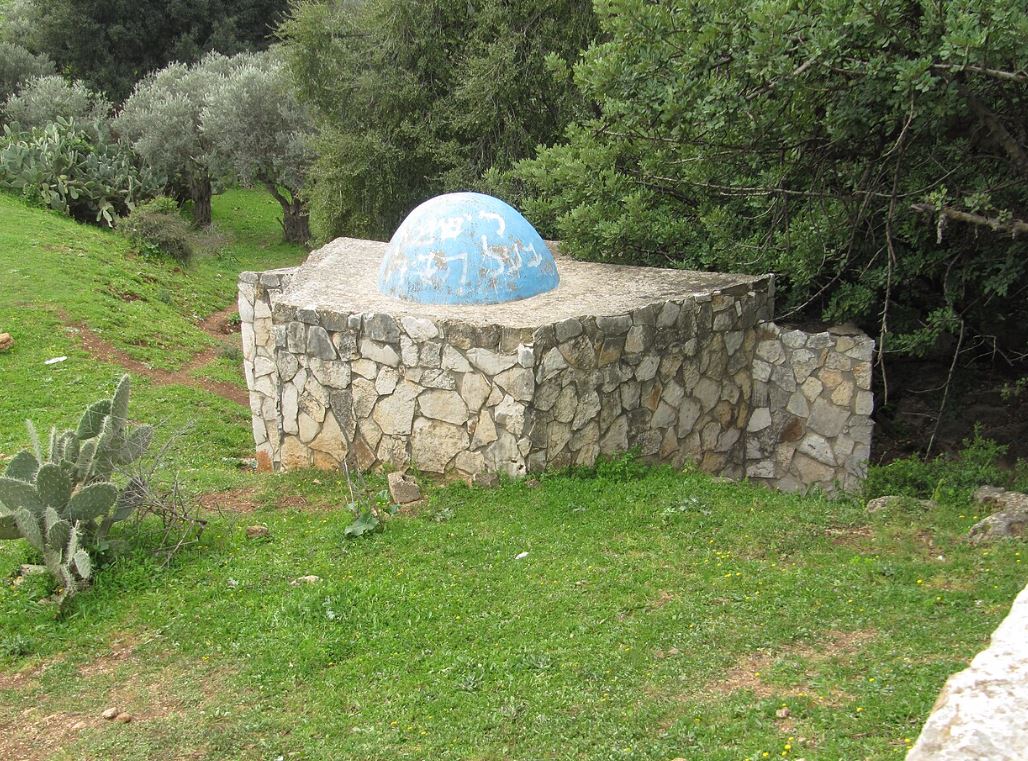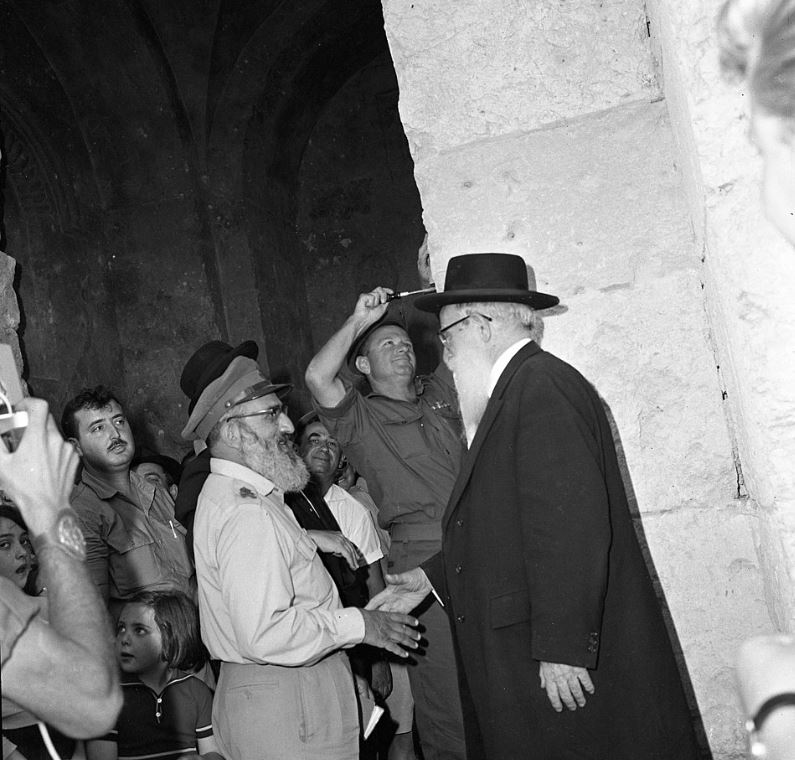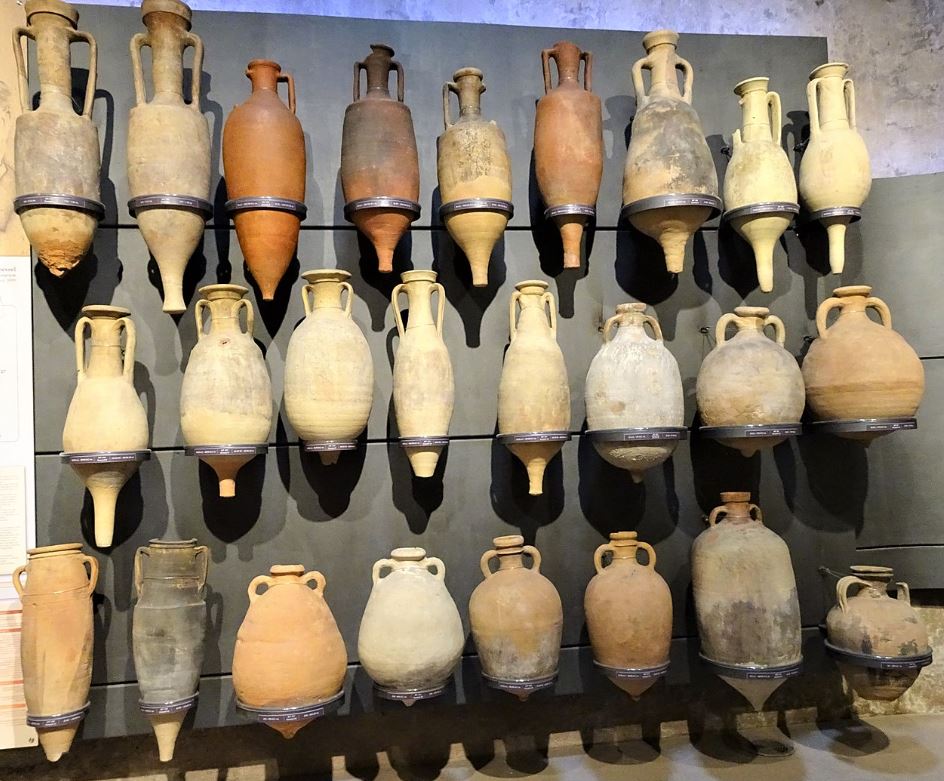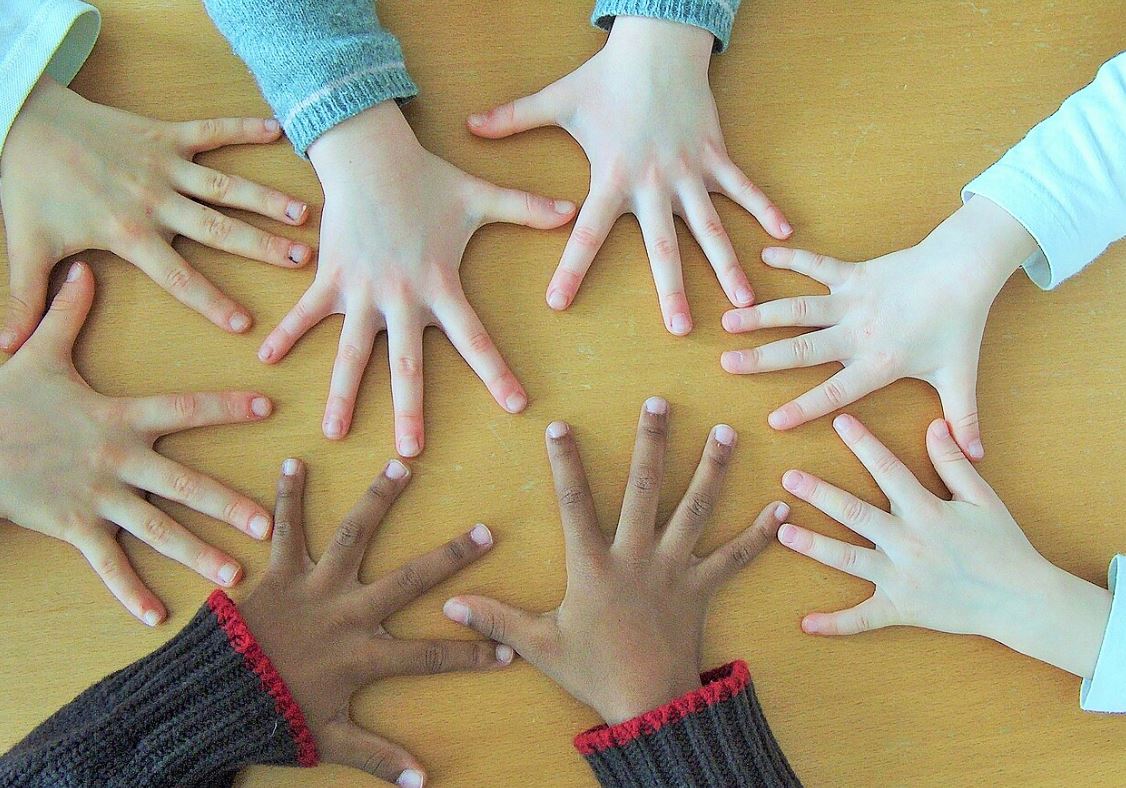Brothers receive an estate as an inheritance. All things being equal, how do they divide it up? Our Gemara answers that it should be done by lot (goral) just as the land was divided in the days of the conquest under Joshua. The Gemara asks, but shouldn’t it have the other elements that that division had?
“Just as there, [the initial division of Eretz Israel was carried out] through a kalpi and the Urim VeTummim, so too here” (Bava Batra 106b)
Similarly, a little later in our masechet we hear about the division of the land in the time of Joshua, and this same enigmatic word, kalpi is used:
“Elazar was dressed with the Urim VeTummim, and Joshua and all the Jewish people were standing before him, and a kalpi containing the names of the tribes and another kalpi containing the names of the boundaries were placed before him.” (Bava Batra 122a)
What is a kalpi and where do we find lots in Tanakh?
The term “goral” appears quite often in the Bible. As a lottery, it can mean one of two things: choosing from members of a group, for a particular reason; and dividing up goods among the members of a group. The latter meaning is what is going on in the book of Joshua, where the Land of Israel needs to be divvied up among the different tribes:
“And these are the allotments of the Israelites in the land of Canaan, that were apportioned to them by the priest Eleazar, by Joshua son of Nun, and by the family heads of the Israelite tribes, the portions that fell to them by lot, as GOD had commanded through Moses for the nine and a half tribes.” (Joshua 14:1-2)
The former meaning appears in many different places. The most famous one is in Megillat Esther (3:7), where Haman wants to choose a date to destroy the Jewish people. He casts lots, which are given their Hebrew name, goral, as well as their Persian name, pur. This Persian term is the origin of the name of the holiday of Purim.
Lots are also cast to choose a king (Saul, Samuel I 10:20), to determine a criminal (Achan, Joshua 7:18) and Jonah, Jonah 1:7) and to determine who will be sent to live in Jerusalem (Nehemiah 11:1). While a lottery might seem to be pure chance, in Tanakh it is anything but. God’s will makes the lots fall out in the “correct” way. This is clear in the story of King Saul, where he was already chosen by the prophet Samuel to be the king. The lots just confirm and make public that choice. The Gemara demonstrates this when it explains the connection the Urim veTummim to the lottery:
“And he would ascertain with the Divine Spirit and say: Zebulun now emerges and the boundary of Akko emerges with it. He would mix the lots in the kalpi of the tribes and the lot of Zebulun would emerge in his hand. He would then mix the lots in the kalpi of the boundaries, and the boundary of Akko would emerge in his hand.” (Bava Batra 122a)
The most famous lottery in the Torah is the very public one on Yom Kippur. Here the High Priest draws lots for two identical goats: one will be sacrificed and one will be sent out to the desert, “to Azazel.”
“and he shall place lots upon the two goats, one marked for God and the other marked for Azazel.” (VaYikra 16:8)
The Torah talks about two lots, goralot, but when the Mishnah explains what will happen, we get a new term, the one we have already seen in our Gemara:
“And they arranged two goats there, and there was a kalpi there, and in it were two lots.” (Mishnah Yoma 3:9)
The word kalpi is what the Mishnah and Gemara use to explain how a lottery is conducted. Lots are placed in the kalpi and chosen from there. Kalpis is a Greek word for a water jar. It had a flat bottom and a narrow neck and handles on each side. Often it was beautifully decorated, especially if it was made of terracotta:
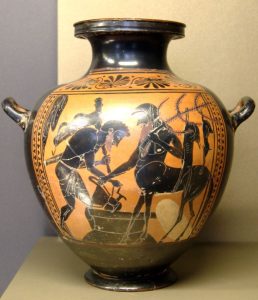
Kalpis from 520 BCE
Louvre Museum, Public domain, via Wikimedia Commons
The kalpis was originally used for wine and water but its use evolved to include ashes, offerings, prizes, and most relevant for us, ballots. In fact the modern Greek word for ballot box is kalpi (as is the modern Hebrew one). The rabbis use the word kalpi only in this last meaning, as we have already seen for the goats and the nahalot. They also somewhat anachronistically put kalpi ballots into other Tanakh stories, like the choice of the seventy elders in Bamidbar 11:
“Some say this means they [Eldad and Meidad] remained excluded from the kalpi” (Sanhedrin 17a)
The kalpi added an air of ceremony to the lottery procedure. The Yerushalmi (Yoma 4:1) explains that the lots for the goat could have been put into plain baskets but they are put into a kalpi so that it will be seen and noticed.
Lots and lotteries continued to follow the Jewish people in later history. Two terrible examples occurred in the Great Revolt. When the fighters at Masada choose to commit suicide rather than fall into Roman hands, they prepared lots to determine who would kill the others before killing himself. Eleven ostraca (pieces of pottery) were discovered on Masada with names on them; Yigael Yadin asserted that these were the lots:
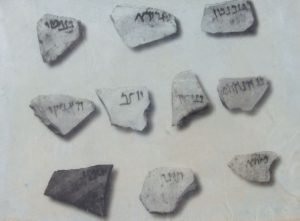
Eliot from The Negev, CC BY 2.0 <https://creativecommons.org/licenses/by/2.0>, via Wikimedia Commons
Josephus tells us this story and he relates a similar one about the fighters at Yodfat, where he was the commander. However, in that tale, he engineered it so that he would draw the last lot and thus stay alive while all the others had committed suicide.
In happier circumstances, the first plots for what would become the city of Tel Aviv were also allocated by lots. In 1909, the sixty-six families of the Ahuzat Bayit organization met on the beach north of Jaffa. Just like in the Gemara’s description of the parceling out of the land, there were two containers; in this case each one was filled with seashells. One set had the names of the families, the other the numbers of the plots. A boy drew a shell from one, a girl from the other and that is how the land was divided up.
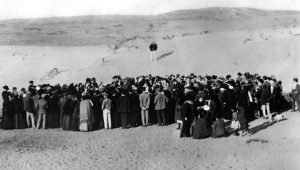
Avraham Soskin, Public domain, via Wikimedia Commons
Today in Israel we not only put our votes inside a kalpi (ballot box) but the act of voting itself is called going to the kalpi. The word goral meanwhile is mostly used in the sense of destiny, while another Mishnaic word, payis פיס, has become the term used for a lottery where you buy tickets in the hopes of winning money. The more things change, the more they stay the same.
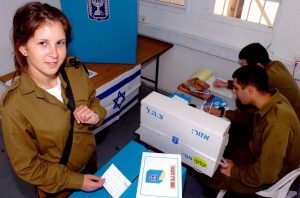
Note the word kalpi
Israel Defense Forces, CC BY 2.0 <https://creativecommons.org/licenses/by/2.0>, via Wikimedia Commons




